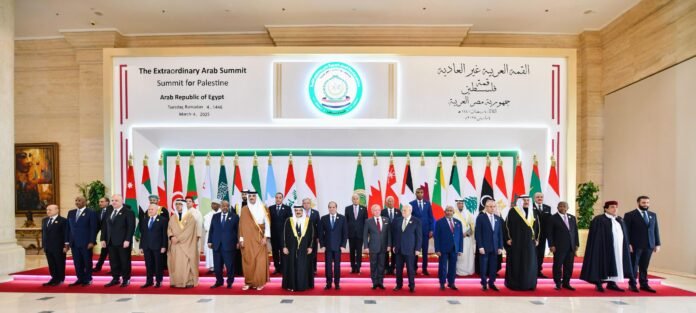Leaders from across the Arab world gathered in Baghdad to discuss urgent issues. The main focus remained on Arab League unity. This gathering symbolized a renewed commitment to regional cooperation.
First, the crisis in Gaza dominated discussions. Leaders strongly condemned military operations and demanded an immediate ceasefire. Furthermore, they pledged significant humanitarian aid to support Gaza’s recovery. Many countries promised financial help for Lebanon’s reconstruction as well. They stressed that aid should reach those in need without conditions. They also opposed any forced displacement of Palestinian civilians. This shared concern highlighted the region’s solidarity and urgency.
Next, participants turned their attention to Syria’s situation. Officials called for Syria’s full reintegration into the Arab community. They emphasized the importance of a political solution and national reconciliation. Even though Syria’s president did not attend, high-ranking officials represented the country. The discussions showed a willingness to move beyond past disagreements for the region’s sake.
Moreover, the summit introduced new initiatives to deepen Arab League unity. Delegates approved the creation of a Joint Arab Security Coordination Chamber. This office aims to improve cooperation against security threats. They also proposed establishing an Arab Center for Artificial Intelligence. This center would boost technological collaboration among member states. Additionally, the Arab Economic Reform Covenant was launched. It seeks to promote integrated investment environments and regional free trade zones.
Alongside these economic plans, environmental concerns gained attention. Leaders supported the Baghdad Initiative to address climate change and environmental risks. They highlighted the need for joint efforts to protect natural resources. Food security also featured prominently on the agenda. The Arab Initiative to Achieve Food Security was proposed to ensure stable supplies across the region.
Throughout the summit, Iraq’s role as host received praise. The country pushed several of these initiatives forward and demonstrated leadership. High-level officials from many nations attended, signaling strong commitment to the summit’s goals. Foreign ministers, ambassadors, and envoys actively participated in all sessions.
International representatives also joined the discussions. Their presence underscored global interest in regional stability. They voiced support for the outcomes and encouraged further cooperation.
Despite some differences, leaders repeatedly returned to the core theme of Arab League unity. They agreed that unity remains essential for peace, security, and prosperity. They emphasized that collective action would better face shared challenges. Furthermore, they called for increased trust, transparency, and accountability among member states.
As the summit concluded, participants pledged to implement the agreements. They committed to turning words into concrete actions soon. Observers noted a positive and hopeful atmosphere throughout the event.
In summary, the summit in Baghdad highlighted one clear message: the future of the Arab world depends on strong Arab League unity. This unity promises to guide the region through political, economic, and environmental challenges ahead.


